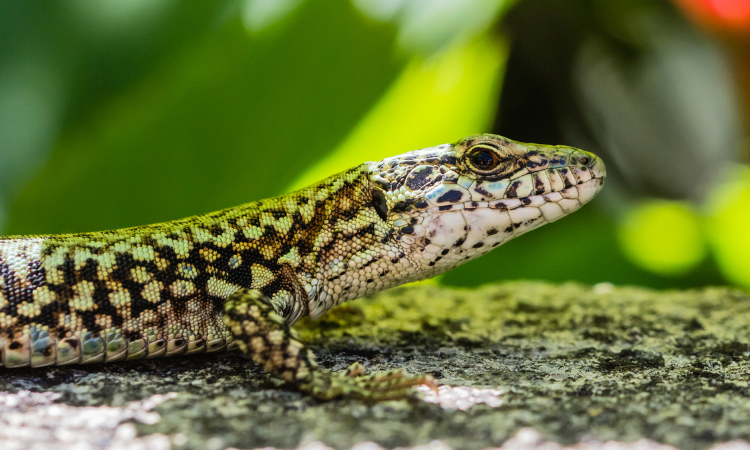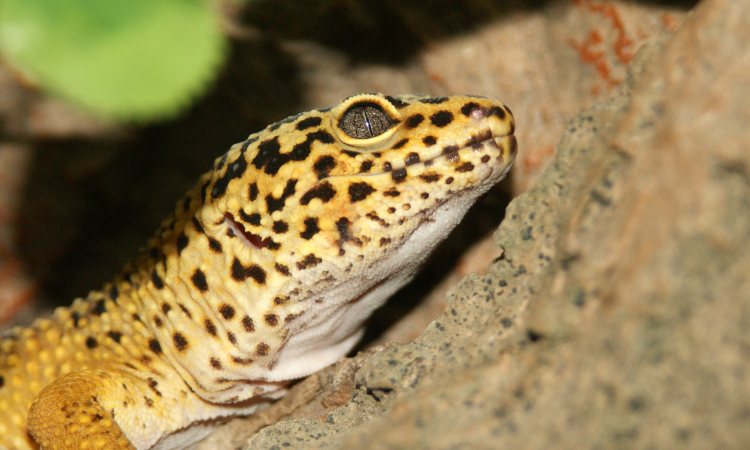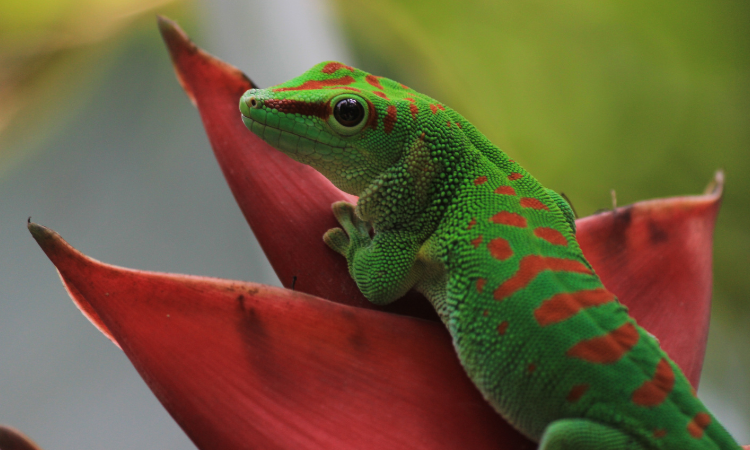As a leopard gecko owner, you know that your pet is a hardy and low-maintenance reptiles – but do you know what items commonly found in the home are potentially toxic to them? While it’s important to understand their basic diet and general care needs, knowing exactly what could put them at risk of harm is just as crucial.
In this blog post, we’ll cover some common household items that can be poisonous to your beloved pet leopard geckos and what steps you should take if they accidentally ingest any potential toxins.

Avoid chemical cleaners and air fresheners around your leopard gecko’s cage
Leopard geckos are delicate reptiles that thrive in natural, organic environments. They require a clean and nontoxic living space to stay healthy and create small messes that are easy to take care of without the need for chemical cleaners or air fresheners.
While these products may be convenient for cleaning other areas in the home, geckos can react negatively when exposed to them and cause long-term health issues.
Instead, try using an all-natural solution with mild soap and water or diluted vinegar to maintain your gecko’s living space without introducing harsh chemicals that could adversely affect their health.
Do not use cedar, pine, or other scented wood shavings as bedding material
Soft and clean bedding is an important aspect of gecko care. For geckos, cedar, pine, and other scented wood shavings should not be used as bedding material due to their high levels of volatile oils that can be hazardous to geckos’ respiratory and skin health.
Instead, geckos should have access to materials such as paper-based products or coconut husk fibers. These materials have a lower risk of harmful odor and dust particles that scented wood shavings emit.
Additionally, many paper-based products are made with recycled paper which is good for geckos’ well-being as well as the environment!

Make sure to avoid any insecticides that may be present in their food
As gecko owners, it’s important to ensure that geckos do not consume insecticides in their food. Insecticides are toxic to geckos, so it’s best to avoid them altogether. You can do this by carefully reading labels and researching the ingredients of any treats you may be giving your gecko.
Another option is to exclusively feed your gecko insects bred specifically for geckos, eliminating the need to worry about pesticides. Making sure that no nasty chemicals get into your gecko’s diet is key in ensuring a long and healthy lifespan.
Keep an eye out for any plastic or rubber toys that could contain toxins such as phthalates or bisphenol A (BPA)
It’s so important to be aware of the materials that make up the toys you buy for your gecko. Toxins such as phthalates and BPA can often be found in plastic and rubber toys, but with a little bit of extra research you can find gecko toys made from safer materials.
Make sure when you do buy a gecko toy, take the time to read labels to know what toxins may be present and consider buying only from reputable sellers. Doing this may feel like an added hassle but it will protect your gecko from exposure that could lead to later health problems.
Avoid using chemical-based pest control products such as flea and tick sprays
If you’re looking for a natural way to control pests, geckos are an excellent option! Geckos don’t rely on harsh chemical products to be effective; instead, they kill their victims through physical contact. These lizards have been used by cultures around the world for centuries to keep pests away from crops and home gardens.
One study even found gecko lizards are able to kill pests such as fleas and ticks with great efficiency and safety. In addition, geckos won’t harm native wildlife or pets like traditional chemical-based pest control sprays do.
So if you’re looking for an alternative to chemical-based pest control products, geckos may be your answer!

Monitor humidity levels in the terrarium – too high of a humidity can be toxic to leopard geckos
While leopard geckos are great reptiles to keep as pets, it is important to ensure that the terrarium environment is carefully monitored. Too much humidity in the enclosure can be toxic for geckos, so measuring and controlling humidity levels is a priority.
Maintaining an accurately calibrated hygrometer within the terrarium will allow gecko owners to quickly assess any changes in humidity and act accordingly.
Although geckos can survive modest changes in humidity, regularly monitoring these levels helps protect geckos from serious health risks associated with excessive moisture.
In conclusion, it’s important to take the time to monitor and adjust the environment in your leopard gecko’s terrarium. Be sure to avoid chemicals and air fresheners, as well as cedar, pine and other scented wood shavings.
Additionally, be mindful of potentially toxic insects or plastic toys you may come across. Monitor humidity levels regularly and use natural pest control products whenever possible. With diligent care in these areas, your leopard gecko life can be long and healthy.
Taking the time to ensure your pet feels safe and healthy with the right environmental features is essential for fostering a loving relationship. Pet owners who recognize this will be rewarded with years of companionship with their beloved reptile friend.
Related posts:

Hi – I’m Erika, the lead gecko enthusiast here at Geckopedia! I write articles about pet geckos, including what to feed your leopard gecko and how to help your pet gecko live a long, happy life! I graduated with advanced degrees from UC-Berkeley, the University of Southern California (USC) and Indiana University-Bloomington, where I studied Biology and Animal Science. I use my experience to help others learn about gecko care, and I am an advocate for all topics gecko related!
